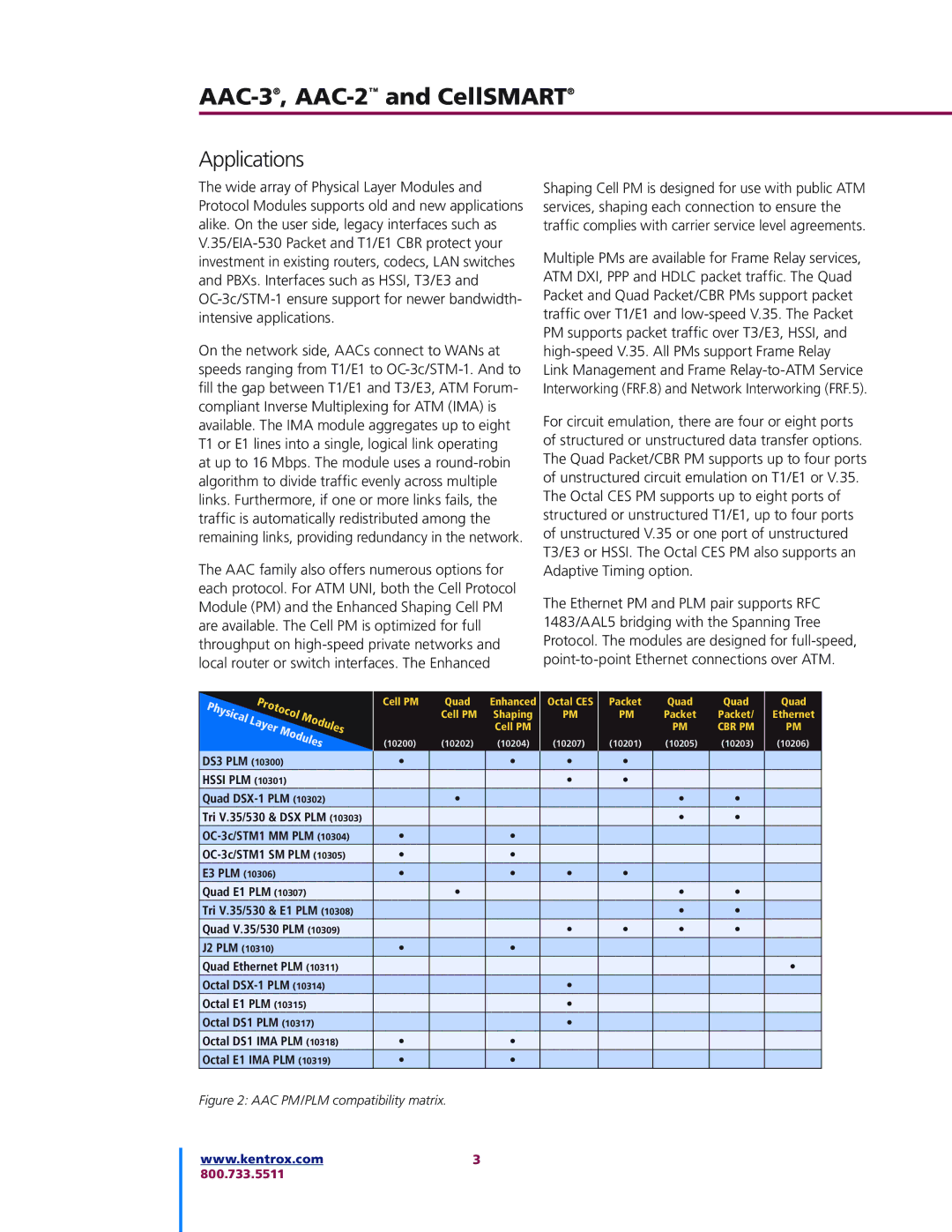AAC-2TM, CELLSMART, AAC-3 specifications
Kentrox, a leader in network management solutions, has developed several innovative platforms, notably the CELLSMART, AAC-3, and AAC-2TM. These products are specifically designed to optimize communication networks, ensuring high efficiency and reliability.The CELLSMART platform is engineered to enhance cellular network management. Its primary feature is the ability to monitor and control performance in real-time, which enables operators to proactively manage network issues and optimize resource allocation. CELLSMART utilizes advanced analytics and machine learning algorithms to predict potential problems before they impact network performance. This predictive capability significantly reduces downtime and improves the overall user experience.
In addition, CELLSMART features a user-friendly interface that allows network engineers to visualize critical data easily. The platform supports a wide range of wireless technologies, including LTE and 5G, making it a versatile solution for various network environments. Another characteristic of CELLSMART is its scalability, allowing operators to expand their monitoring capabilities as their network grows.
The AAC-3, or Advanced Access Controller, is another key product from Kentrox. This versatile device supports a multitude of communication protocols, making it compatible with various systems and technologies. One of its standout features is its ability to consolidate data from multiple sources, providing a comprehensive view of network performance. The AAC-3 is equipped with robust security measures, ensuring that data integrity and privacy are maintained.
Moreover, the AAC-3 supports both wired and wireless connections, enabling flexible deployment in different environments. Its modular architecture allows for easy upgrades and modifications, ensuring longevity and adaptability to future technology advancements.
The AAC-2TM, or Advanced Access Controller 2 with Telecommunications capabilities, represents the next evolution in accessibility and control. It offers enhanced operational efficiency through automated configuration and management features. AAC-2TM is designed specifically for mission-critical telecommunications applications, where reliability and uptime are paramount.
This model emphasizes energy efficiency, contributing to sustainable operations while reducing costs. It integrates seamlessly with existing infrastructure, allowing for an easier transition and implementation process. With its enhanced troubleshooting tools, the AAC-2TM facilitates quick problem resolution, further optimizing network performance.
In summary, Kentrox’s CELLSMART, AAC-3, and AAC-2TM platforms provide comprehensive solutions for network performance monitoring, management, and optimization. Their advanced technologies and robust features position them as essential tools for communications operators seeking to enhance reliability and efficiency in their networks.

